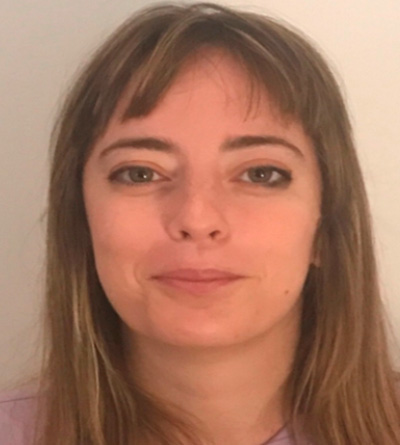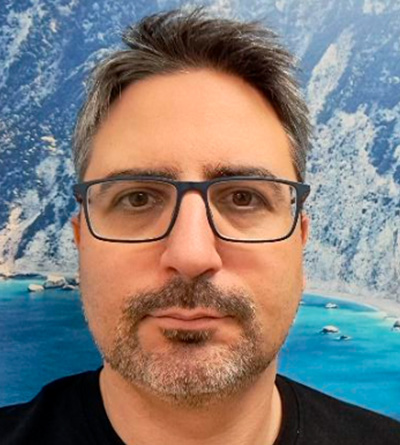WEBINAR SERIES:
Oxidative Stress: Biochemical and Pharmacological aspects
15:00-17:00 (CET)
January 19th, 2024,
15:00-17:00 (CET)
Participation is free of charge but registration is compulsory at www.antiox.it
Oxidative stress is a well-known hallmark of Antiphospholipid Antibody Syndrome (APS), a systemic autoimmune disease characterized by arterial and venous thrombosis and/or pregnancy morbidity. Oxidative stress may affect various signaling pathways and biological processes, promoting dysfunctional immune responses and inflammation. The chronic oxidative stress and the dysregulation of the immune system in APS leads to the loss of tolerance, which drives autoantibody production and inflammation with the development of endothelial dysfunction. This pro-inflammatory microenvironment promotes the production of reactive oxygen species. The pathogenic roles of oxidative stress and inflammation in APS are also related to their ability to affect protein structural modifications by promoting post-translational modifications (PTMs) and by causing the formation of neo or cryptic epitopes that recognized by immune cells promote autoimmune responses. We have showed the effects of oxidation, nonenzymatic glycosylation and carbamylation on β2GPI structure and how these events render this self-protein able to activate dendritic cells, the professional antigen-presenting cells capable of activating both innate and adaptive immunity. We have also demonstrated that PTMs of β2GPI are recognized by sera of patients with APS. An oxidation-antioxidant imbalance may be detected in the blood of patients with APS as a reflection of disease progression. Personalized redox medicine approaches are emerging in the context of APS and are based on broad range of Nuclear Factor Erythroid 2-Related Factor 2 (NRF2) activators, thus representing an additional therapy for restoring redox homeostasis and to reduce APS-related clinical complications.

Dr Gloria Riitano, Researcher at the Department of Experimental Medicine, Sapienza University of Rome, graduated in Medicine and Surgery and specialized in Clinical Pathology at Sapienza University of Rome. During her training she visited the lab of Dr Carrie Shawber at Department of OB/GY, Columbia University of New York (USA), focusing the research on the role of Notch 4 in lymphangiogenic. Then, she moved to Prof. Sorice lab’s, a great expert of Antiphospholipid Antibodies Syndrome at Sapienza University of Rome, where she obtained PhD degree in Experimental Medicine. Her professional career is focused on the study of the immunopathogenesis of autoimmune diseases, exploring the role of the regulation of autophagy and cell apoptosis and the functional role of lipid rafts. She is engaged in the identification of “new” antigens and autoantibodies and looking for reliable biological markers that can also serve as drug targets. In addition, she is involved in teaching General Pathology at Sapienza University of Rome.
The thyroid gland is different compared to other tissues in that it actively generates hydrogen peroxide (H2O2) that is used in the synthesis of thyroid hormones, a process that starts with the uptake of dietary iodide (I-) into thyroid follicular cells and its subsequent oxidation that is facilitated by H2O2. Therefore, we hypothesized that the Keap1/Nrf2 antioxidant response system might be particularly important for the physiology of the thyroid, and that its perturbations might be involved in various thyroid diseases, including the quite common forms of thyroid autoimmunity. In our early studies, we documented the activation of Nrf2 signaling in common forms of thyroid cancer in humans. Next, we discovered that Nrf2 regulates positively the transcription of the gene that encodes thyroglobulin, the precursor of thyroid hormones, while at the same time it regulates negatively the iodination of thyroglobulin, which is next step in thyroid hormone synthesis after iodide oxidation. Thyroglobulin is also a major autoantigen in the thyroid, and it is known that aberrant iodination of thyroglobulin can enhance its immunogenicity. This raised our interest in examining the relationship between the Nrf2 system and thyroid autoimmunity. In a clinical study, we found that functional polymorphisms in the promoter of NFE2L2 that encodes NRF2 in humans interact genetically with a functional polymorphism in the promoter of SELENOS that encodes the proteostatic selenoprotein S (SelS) to modulate the risk of Hashimoto’s thyroiditis, the most common form of thyroid autoimmunity. Further experiments indicated that this interaction may be due to a bidirectional positive feedback between the Nrf2 and SelS pathways. In our current studies, we are using a polygenic mouse model of iodine-accelerated autoimmune thyroiditis to directly test the role of Nrf2 loss- or gain-of-function in the development and progression of thyroid autoimmunity.

Prof. Gerasimos (Gerry) Sykiotis, is a physician-scientist specialized in clinical and basic endocrinology with a particular focus on thyroid physiology and thyroid diseases, including thyroid cancer. After graduating in medicine from the University of Patras (Greece), he trained in internal medicine and endocrinology in Patras and Boston (MA, USA). On the research side, he obtained a PhD in endocrinology from the University of Patras followed by postdoctoral research at the University of Rochester Medical Center in Rochester (NY, USA) and at the Massachusetts General Hospital in Boston (MA, USA), and a position as Investigator at the Novartis Institutes for Biomedical Research in Cambridge (MA, USA). Since 2015, he is responsible for the thyroid clinic at the Endocrinology Service of the CHUV (Lausanne University Hospital). His basic research, funded primarily by the Swiss National Science Foundation, focuses on the roles of cellular antioxidant response systems in thyroid physiology and pathophysiology. His clinical research focuses on the needs of patients with thyroid diseases, including quality of life among thyroid cancer patients and survivors.
COST (European Cooperation in Science and Technology) is a funding agency for research and innovation networks. Our Actions help connect research initiatives across Europe and enable scientists to grow their ideas by sharing them with their peers. This boosts their research, career and innovation.
Grant Holder: Universidad Autónoma de Madrid
Start of Action: 19 October, 2021
End of Action: 18 October, 2025
CSO approval date: 25 May 2021
Action email: info@benbedphar.org
© 2022 BenBedPhar | Design by Tuinbit Group